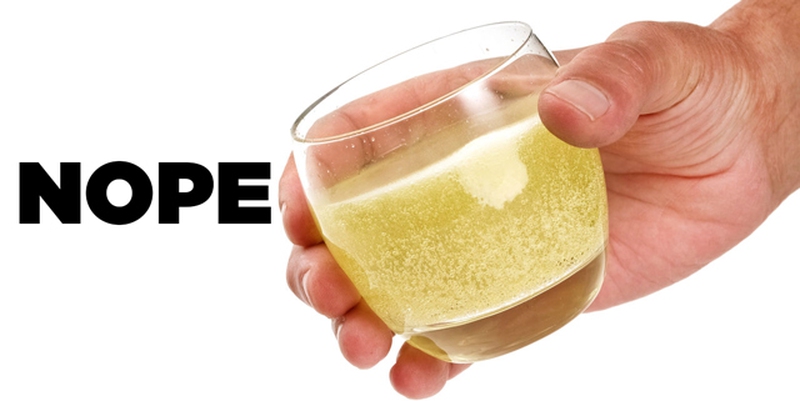The unavailability of safe drinking water always leads to serious complications. Natural disasters may also play a role in limiting the availability of safe drinking water. However, there are people who believe that there are other ways to quench your thirst when water is not available. They believe it is possible to drink your urine. Can you? Is it safe to do it? Let's find out more.
Can You Drink Your Own Pee?
No, you can't. You have to understand that your urine contains waste products of your body. While it is true that it contains water as well, there will be more waste products than water in a dehydrated individual. Your urine also contains dissolved minerals, salts, and toxins from your liver. Dehydration increases the amount of these wastes and dissolved minerals in your urine.
If you are already dehydrating because there is no water available, drinking your own urine is not going do you any good. In fact, the opposite is true – you will become dehydrated faster when you drink your own pee in this situation. It is like drinking seawater, which contains salt and other pollutants that can dehydrate you at an even faster rate. By drinking your own urine, you will be putting those waste products and pollutants back into your body, which may lead to a buildup of toxic levels.
That being said, there may not be any side effect of sipping the occasional urine sample. However, it still depends on other factors as well. For instance, the urine of someone taking drugs will contain more harmful substances, and drinking this urine even in smaller quantities may prove more harmful.
Myths about Water for Survival
Myth: It is safe to drink running water.
That is not always true. If it is running water, it means it is coming from somewhere and may have been exposed to several contaminants on its way through. However, if you compare running water with stagnant water, you should always drink running water. Still, it is a good idea to treat and purify it before drinking.
Myth: You can rehydrate yourself by eating snow.
No, this is not true. In fact, you may start dehydrating at a faster rate. The reason is that your body will have to use its energy and heat to melt the snow first. This may lead to further dehydration and even cause hypothermia. Moreover, the snow may also be contaminated, especially if it has been on the ground for quite some time. It is therefore important to first melt the snow before you consume it. Avoid using it if it does not look white or fresh.
Myth: It is safe to drink saltwater in small amounts.
No, that is not true, and is a big mistake that can lead to serious complications. Doing this will lead to further dehydration and may result in death. A better idea would be to use saltwater to cool down your body. Never try to drink it.
Myth: Barrel Cacti are an excellent source of water.
Again, this is not always true. Cacti can hold water, but that is definitely not enough to save you from dehydration. Moreover, the water inside may be acidic and bitter. Drinking it could lead to diarrhea, vomiting, and cramps. This will speed up dehydration and put you in an even complicated situation.



View All Comments /Add Comment